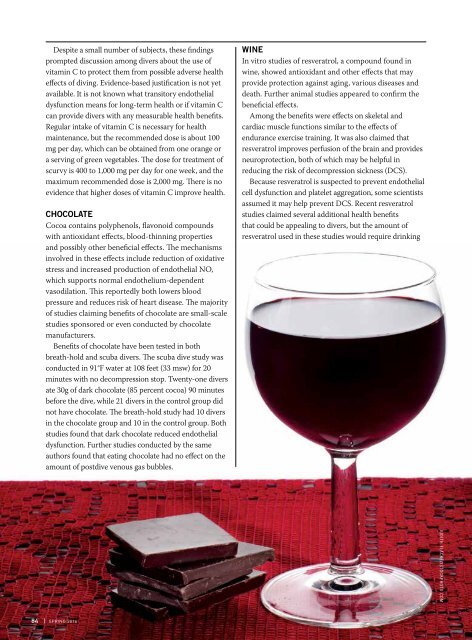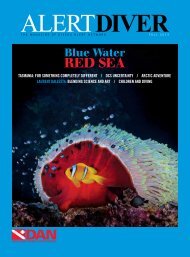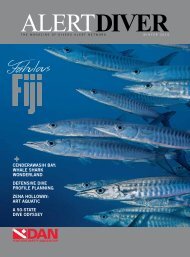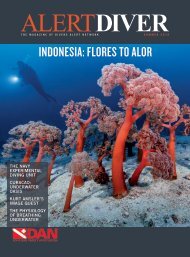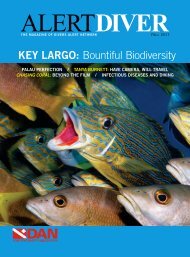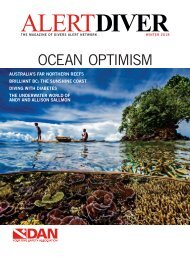AD 2016 Q2
As we pointed out in the spring 2013 edition of the Alert Diver, even being a dive buddy has potential legal implications. So, to bump this up a notch, what about the diver training organisations themselves? Where do they stand? How do they relate to South African law? Are they all considered the same under our legal system in spite of the differences in organisational structures and training programmes? How does this affect their respective instructors and trainee divers from a legal perspective? These are not exactly simple questions. It is certainly true that the respective training organisations differ in a number of ways. However, this does not imply that there are necessarily differential legal implications for each of them. In fact, under South African law, the legal principles are common in all matters. Therefore, if you suffer a loss and you (or your estate in the case of a fatality) wish to recover damages, the legal principles would be applied commonly; whether you are driving or diving. Although not a frequent occurrence, there have been quite a number of law suits associated with diving injuries and damages in South Africa. This is not surprising, as the occurrence of law suits is really a function of “numbers”. As training increases, so do the chances of injuries and, with it, the chances of legal recourse. So, it remains wise to insure yourself, your equipment or your business in a proper and effective way. But before getting back to the potential differences amongst the training agencies, let’s first explore the foundational legal principles on which any civil claim would be adjudicated: inherent risk, negligence and duty to take care.
As we pointed out in the spring 2013 edition of the Alert Diver, even being a dive buddy has potential legal implications. So, to bump this up a notch, what about the diver training organisations themselves? Where do they stand? How do they relate to South African law? Are they all considered the same under our legal system in spite of the differences in organisational structures and training programmes? How does this affect their respective instructors and trainee divers from a legal perspective? These are not exactly simple questions.
It is certainly true that the respective training organisations differ in a number of ways. However, this does not imply that there are necessarily differential legal implications for each of them. In fact, under South African law, the legal principles are common in all matters. Therefore, if you suffer a loss and you (or your estate in the case of a fatality) wish to recover damages, the legal principles would be applied commonly; whether you are driving or diving.
Although not a frequent occurrence, there have been quite a number of law suits associated with diving injuries and damages in South Africa. This is not surprising, as the occurrence of law suits is really a function of “numbers”. As training increases, so do the chances of injuries and, with it, the chances of legal recourse.
So, it remains wise to insure yourself, your equipment or your business in a proper and effective way. But before getting back to the potential differences amongst the training agencies, let’s first explore the foundational legal principles on which any civil claim would be adjudicated: inherent risk, negligence and duty to take care.
You also want an ePaper? Increase the reach of your titles
YUMPU automatically turns print PDFs into web optimized ePapers that Google loves.
Despite a small number of subjects, these findings<br />
prompted discussion among divers about the use of<br />
vitamin C to protect them from possible adverse health<br />
effects of diving. Evidence-based justification is not yet<br />
available. It is not known what transitory endothelial<br />
dysfunction means for long-term health or if vitamin C<br />
can provide divers with any measurable health benefits.<br />
Regular intake of vitamin C is necessary for health<br />
maintenance, but the recommended dose is about 100<br />
mg per day, which can be obtained from one orange or<br />
a serving of green vegetables. The dose for treatment of<br />
scurvy is 400 to 1,000 mg per day for one week, and the<br />
maximum recommended dose is 2,000 mg. There is no<br />
evidence that higher doses of vitamin C improve health.<br />
CHOCOLATE<br />
Cocoa contains polyphenols, flavonoid compounds<br />
with antioxidant effects, blood-thinning properties<br />
and possibly other beneficial effects. The mechanisms<br />
involved in these effects include reduction of oxidative<br />
stress and increased production of endothelial NO,<br />
which supports normal endothelium-dependent<br />
vasodilation. This reportedly both lowers blood<br />
pressure and reduces risk of heart disease. The majority<br />
of studies claiming benefits of chocolate are small-scale<br />
studies sponsored or even conducted by chocolate<br />
manufacturers.<br />
Benefits of chocolate have been tested in both<br />
breath-hold and scuba divers. The scuba dive study was<br />
conducted in 91°F water at 108 feet (33 msw) for 20<br />
minutes with no decompression stop. Twenty-one divers<br />
ate 30g of dark chocolate (85 percent cocoa) 90 minutes<br />
before the dive, while 21 divers in the control group did<br />
not have chocolate. The breath-hold study had 10 divers<br />
in the chocolate group and 10 in the control group. Both<br />
studies found that dark chocolate reduced endothelial<br />
dysfunction. Further studies conducted by the same<br />
authors found that eating chocolate had no effect on the<br />
amount of postdive venous gas bubbles.<br />
WINE<br />
In vitro studies of resveratrol, a compound found in<br />
wine, showed antioxidant and other effects that may<br />
provide protection against aging, various diseases and<br />
death. Further animal studies appeared to confirm the<br />
beneficial effects.<br />
Among the benefits were effects on skeletal and<br />
cardiac muscle functions similar to the effects of<br />
endurance exercise training. It was also claimed that<br />
resveratrol improves perfusion of the brain and provides<br />
neuroprotection, both of which may be helpful in<br />
reducing the risk of decompression sickness (DCS).<br />
Because resveratrol is suspected to prevent endothelial<br />
cell dysfunction and platelet aggregation, some scientists<br />
assumed it may help prevent DCS. Recent resveratrol<br />
studies claimed several additional health benefits<br />
that could be appealing to divers, but the amount of<br />
resveratrol used in these studies would require drinking<br />
JUDITH FLACKE/ISTOCKPHOTO.COM<br />
84 | SPRING <strong>2016</strong>


